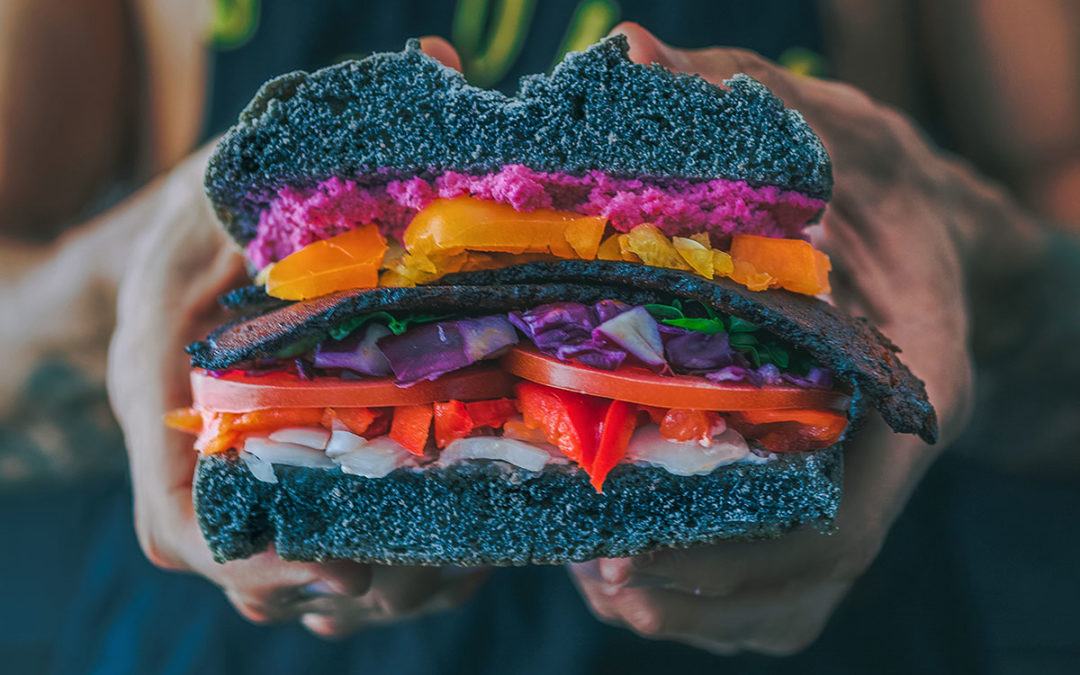To remain competitive, brands need to anticipate consumers’ needs and ensure their core values align with those of their customers. One growing trend in the food industry at the moment is the popularity of veganism. Ceuta Group has researched consumer trends from across the continent to discover just how much awareness, knowledge and interest in veganism is increasing in all of the major European countries since 2014. Using Google data, Ceuta has analysed numerous search terms related to veganism and discovered that consumers are, indeed, educating themselves about the benefits of veganism on a much higher scale than ever before.

Netherlands, Greece, Portugal and the UK lead the way for consumers who are interested in veganism
The Netherlands leads the way where there has been a 645% increase in consumers interested in a vegan lifestyle since 2014, according to Ceuta’s research. Customers in the Netherlands spent €97m on meat replacements in just the first eleven months of 2018. 17% of the country identify themselves as vegetarian or vegan and 25% say they have reduced their overall meat intake.
Greece landed in second place with a 590% increase in the amount of consumers interested in veganism since 2014. In third place is Portugal with a 552% increase. The UK is the fourth highest country on the list where there has been a 469% increase in people interested in this lifestyle choice in the last five years.
Italy is at the bottom of the table and is one of only two major European countries (the other being Bulgaria) where the interest in veganism has actually declined since 2014. The country has a high number of vegetarians with 10% of Italians saying they do not eat meat. However, dairy and eggs are staples of many Italian foods making veganism far less common.

British consumers are most commonly researching the environmental benefits of veganism
Ceuta Group’s research also explored the reasons why consumers have been adopting veganism. Whilst many people might think that animal welfare would be the main reason for people choosing a plant-based diet, there has only been a 29.78% increase in British people researching why veganism protects animals since 2014. There has, however, been a 61.10% in the number of people looking into it for health reasons. The biggest increase is in people looking into how veganism can help the environment. There was a 159% rise in the number of people research how veganism can reduce their carbon footprint.
Adele Halsall, a vegan blogger and influencer who writes for Everything’s Peachy, said: “The UK government has just declared a climate emergency based off the back of recent studies showing that the planet really is in a bad way. A huge part of this has been down to animal agriculture, which is the second largest contributor to greenhouse gas emissions after fossil fuels.”
“Many people, especially environmentalists, cannot conceivably go on eating animals knowing that it is largely responsible for the dangerous state we are in, so they are switching to a vegan diet. Animal agriculture is responsible for 75-80% of all agricultural emissions. Cattle farming alone is responsible for 18% of greenhouse gas emissions and uses 25% of the world’s ice-free land. Plant crops on the other hand only produce 7% of emissions and use 12% of land.”
Major brands must adapt their strategy and portfolio as veganism becomes increasingly popular
The internet now offers a wealth of information about the benefits of veganism which combats many of the traditional myths about this lifestyle choice. Ceuta Group’s research demonstrates that it’s encouraging more and more consumers to demand products which are both environmentally and socially responsible. This is especially the case with young people; 73% of millennials say they would be willing to pay more for a product if it is from an ethical brand. It presents a big opportunity for brands both big and small.
Tesco is one of the major brands that recognised the changing needs of consumers at an early stage and diversified their range to meet the demands of consumers increasingly interested in meat-free, sustainable choices. In 2018, they launched the largest supermarket range of own-brand plant-based meals across 600 of its stores. The Wicked Kitchen range, masterminded by the American chef Derek Sarno, brought vegan friendly pizzas, burritos, lasagna and more to the supermarket’s customers.
However, there is much more that a major brand can do. Brands should not only offer products that cater to consumers’ desire to be more sustainable; a strong social conscience is also something that needs to feed into a brand’s messaging as much as its strategy or portfolio. In Ceuta Group’s Focus Magazine, managing director Annette D’Abreo wrote: “Brand owners have a new job, they have to not only create great brands, they have to create great brands that connect with the consumers… Get this right and followers will stay loyal and true.”
Consumers do not just expect products to be trustworthy, healthy and socially responsible; they want the same thing from the brands they purchase these products from. They now have both the motivation and the tools to find out more about a company’s values, the sources of their ingredients and the production process behind what they consumer. Therefore, brands need to be transparent about the origins and provenance of their products
Case Study: Greggs’ vegan sausage roll exhibits how major brands can succeed by introducing meat-free alternatives
Lawrence Janes, managing director of Collidascope, wrote in Ceuta Group’s Focus magazine: “Brands that are not adapting their views, messages and products are beginning to suffer volume and value declines.” However, one brand that offers a perfect case study of how to successfully diversify your portfolio to meet a market that is interested in sustainable, healthy, meat-free food is Greggs. In January, the high street food outlet launched its vegan sausage roll to both coincide with Veganuary and capitalise on the growing trend of consumers choosing meat-free food. The product was launched with a YouTube advert which parodied an iPhone commercial and quickly received over five million hits.
Journalists were also sent samples in mock smartphone packaging ahead of the launch alongside a press kit with all the sausage roll’s ingredients so as to be totally transparent. One such journalist was Good Morning Britain’s host Piers Morgan. Morgan’s outrage towards the snack on social media (“nobody was waiting for a vegan bloody sausage, you PC-ravaged clowns,” he tweeted) sparked a national debate about veganism and attracted huge publicity for Greggs across many channels. Greggs’ vegan sausage roll later sold out at multiple outlets and the firm’s share price later increased by almost 20%.

